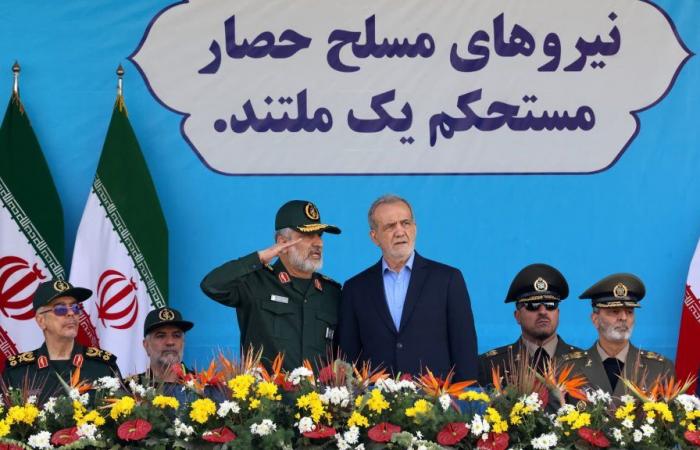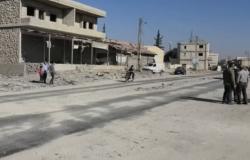Israel’s sworn enemy, Iran has not yet intervened in the conflict between the Jewish state and Hezbollah, a Shiite group allied to Tehran. Anxious to avoid a destructive war, the regime is faced with a strategic dilemma.
Where is Iran? While the Israeli army is waging a merciless war against Hezbollah, Tehran’s ally, in southern Lebanon, the mullahs’ regime has so far been content with simple verbal warnings, refusing to enter the conflict militarily. .
Iran has, however, been Israel’s sworn enemy since the Islamic Revolution of 1979. Several of its leaders, led by Supreme Guide and leader of the regime Ali Khamenei, advocate the “destruction” of Israel, described as a “Zionist regime.” criminal and terrorist.
Despite this warlike rhetoric, Iran would in reality have little interest in entering into an all-out war against Israel. The risks for the Iranian nation and its religious leaders are too great, people close to the Iranian government told the New York Times on condition of anonymity. The military capabilities of the country and its allies could be significantly reduced by a prolonged confrontation with Israel, and even more so if the US military comes into play, they fear.
A war too risky for the regime?
Questioned by AFP, Ali Vaez, analyst at the Crisis Group think-tank, believes that any Iranian escalation could “guarantee a strategic victory” for Israeli Prime Minister Benjamin Netanyahu. And even have an impact on the American presidential election, by helping Donald Trump return to power, which “would be highly detrimental to Iranian interests”.
Instead of “playing into the hands of its sworn enemy” Israel, notes Ali Vaez, Iran is pushing “to obtain sanctions relief and (…) some economic respite.” Iran has been in the grip of a serious economic crisis since former US President Donald Trump withdrew his country from the international agreement aimed at freezing Iran’s nuclear program in 2018 and reimposed tough sanctions against Iran.
Several European countries have also ended their air links with Iran, accused of supplying missiles to Russia for the needs of its war in Ukraine.
Moderated speech
More moderate than his predecessor Ebrahim Raïssi, killed in a helicopter crash last May, Iranian President Massoud Pezeshkian is pleading for better relations with the West. Visiting the United States this week to attend the UN General Assembly, he accused Israel of warmongering, while presenting a moderate image of his country.
“We know better than anyone that if a larger war were to break out in the Middle East, it would not benefit anyone in the world. It is Israel that seeks to create this larger conflict,” he told the press.
Iran carried out an unprecedented drone and missile attack against Israel on April 13 – most of which were intercepted – to respond to a strike against its consulate in Damascus. Analysts then estimated that Tehran was seeking to “show its muscles” in the wake of the war between Israel and Hamas, while taking care not to provoke a confrontation with Washington.
Israeli offensive in Lebanon: the specter of a “total war”
“Axis of Resistance”
If it does not intervene directly, Iran continues to support Hezbollah, of which it is the ideological godfather and the main supplier of weapons. Foreign Minister Abbas Araghchi recently assured that “Iran will not remain indifferent” to Israeli strikes targeting senior Hezbollah commanders.
On Wednesday, Iran’s supreme leader, Ayatollah Ali Khamenei, deplored the deaths of “precious” Hezbollah fighters, while asserting that this “damage” could not “bring to its knees” the Lebanese group.
Beyond Hezbollah, Iran is also mobilizing all members of the “Axis of Resistance”, pro-Iran forces scattered throughout the Middle East, from Hamas in Gaza to the Houthis in Yemen, including the regime Syrian. According to officials close to the Iranian regime interviewed by the New York Times, Iran uses its “proxies” not to wage total war, but to keep the Israeli army under pressure.
Between demonstrations of hatred towards Israel and military restraint, Iran is seeking a fragile balance. At the risk of damaging its image among its allies. Speaking to the BBC, a former commander of the Islamic Revolutionary Guard Corps, a paramilitary body attached to Ayatollah Khamenei, says that repeated threats against Israel without implementation are harming Iran’s credibility, both in the country than among his supporters abroad.






